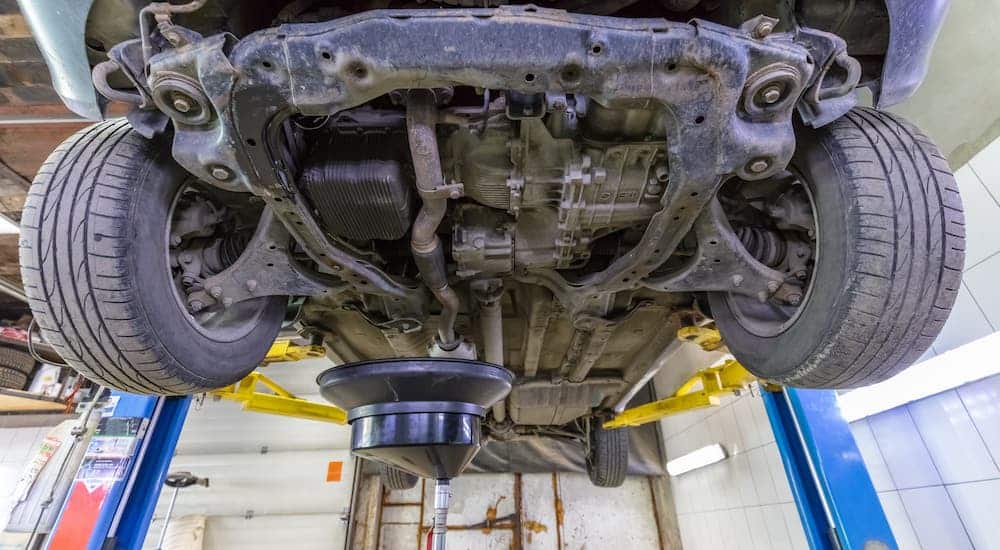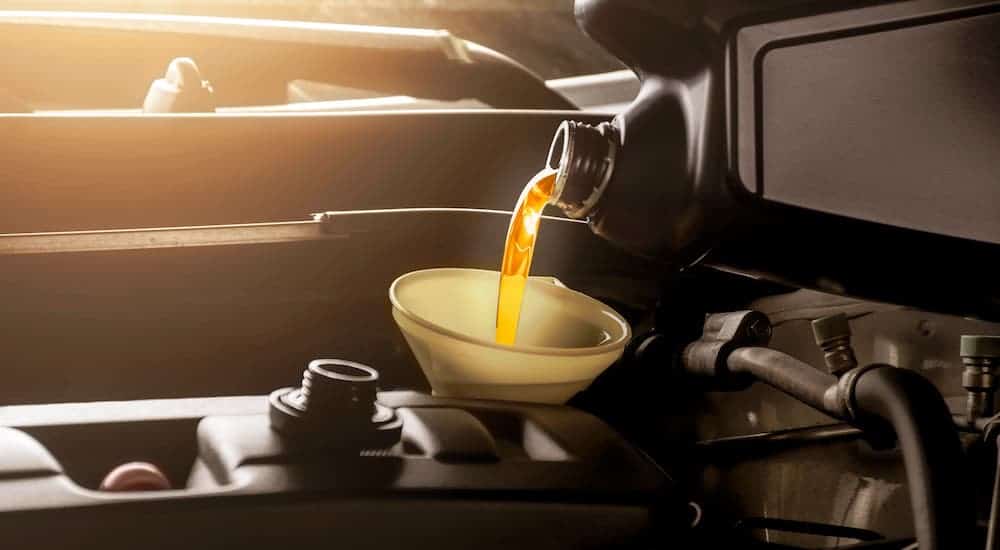Proper car maintenance isn’t sexy. But like any other kind of routine care or service from brushing your teeth to mowing the lawn, while it is not exciting, it is important. Taking care of your vehicle by following a service schedule and getting an oil change when it’s needed might not be thrilling, but the benefits are truly important and will make your life better. Whether you have a location in mind where you typically go for an oil change near you, or you’re trying to figure out where to start, I’m here to help.
There are a few things that you should consider before you go in for your next oil change, some of which you might not have ever thought about before. It doesn’t matter if you’re an old hand at taking care of your vehicle or just getting started; this is important stuff that can be easy to overlook. But if you take a few minutes today to consider your options and know what’s important, it can save you some serious headache in the long run. So, here are six things you should consider before getting your next oil change.
#1 – Is It Really Time for an Oil Change?
Properly taking care of your vehicle is incredibly important, and a big part of that is abiding by a maintenance schedule to make sure you get work done as needed. That being said, it’s worthwhile to take a moment to consider if it’s really time to get work done before you get your oil changed at a shop near you. The old conventional wisdom was that you should change your oil every 3,000 miles, and that’s still something you might hear a lot (especially if you ask an older relative how often you should change your oil). Over the last few decades, however, there has been a lot of work done to improve motor oil and make it more efficient over a longer period of time.
Now, you probably don’t need to change your oil more often than every 5,000 to 7,000 miles. In fact, depending on your driving habits, your vehicle, and the type of oil you use, it’s entirely possible that you don’t need to change your oil more than once every 10,000+ miles. The best way to know how often you should change your oil is to look at the owner’s manual for your vehicle. Yes, that book that takes up space in your glove compartment is actually useful. The people who made your vehicle know exactly how it should be cared for, and that includes a maintenance schedule that’s more accurate than what any shop will tell you.

#2 – Does the Location Matter?
Speaking of shops that offer oil changes near you; before you get your oil changed (or any work done really), take a moment to consider the location. There is no shortage of shops that offer oil changes, and a lot of them promise low prices and quick turnarounds. Sounds great, right?
Here’s the thing though, not all garages and shops are made equal. You want to take your vehicle somewhere you trust, where you know they have your interests in mind. There are plenty of garages that will do the work well, but make sure you take the time to look into any location before heading there.
The dealership where you bought your vehicle can be a great choice for getting your oil changed. They want to have you come back, after all, so they typically offer low prices and get you in and out quickly. Plus, they should have the budget to hire well-trained mechanics and tech staff, so you know that you’re in good hands.
#3 – Can’t I Just Do It Myself?
Yes, you can, and this is something you should consider before you take your car to get its oil changed somewhere near you. An oil change is a relatively simple procedure and is one of the best places to start if you want to take care of your vehicle yourself. Something like rebuilding an engine or putting on new brake pads can be quite complicated, and any mistakes can be disastrous. Changing your oil, however, typically requires minimal experience and only a few pieces of equipment.
There are plenty of tutorials you can find online that will take you through the process and show you what to do each step of the way. Of course, if you don’t want to get your hands dirty or if you don’t feel comfortable doing this yourself, then a shop near you is a great choice. But just remember that it’s definitely something you can do yourself.
#4 – Should I Choose Conventional or Synthetic Oil?

This is a pretty big question that I could easily write an entire post on just going over all the ins and outs of by itself. However, for now, let us stick with the basics. There are pros and cons for both types of oil, so let’s take a quick look at what they each entail.
Conventional – This is old-fashioned motor oil, mined from the earth, processed a bit, and then poured into your engine. It’s inexpensive, works fairly well, and is readily available. But it doesn’t do anything beneficial (beyond lubricating), and it will break down within a relatively short period of time.
Synthetic – This is an oil that is either entirely or partially produced in a laboratory, rather than being obtained from the ground and processed. It has been engineered to be incredibly efficient so that it will last a long time in your vehicle. There are typically chemicals added to help clean your engine, so it can actually keep your vehicle running longer. It’s pretty expensive, however, significantly more than conventional oil, so it’s not for everyone.
#5 – What about a Blend?
Good question! A blend of conventional and synthetic oil is a great solution if you’re worried about the expense of synthetic oil but still want to take good care of your vehicle. This will fall somewhere between the other two types in terms of cost, but still lasts a long time and can help clean your engine while you drive.
It’s also worth noting that you shouldn’t try to combine different types of oil in your engine – whatever you choose is what you need to stick with until your next oil change. You can, however, switch from conventional to synthetic, or vice versa, when you get your oil changed. Some people do this to save money by not choosing synthetic every time while still getting the benefits of using synthetic intermittently.
#6 – Should I Take Care of Anything Else?
Since you’re having your oil changed at a shop or garage near you anyway, it’s a good time to think about if you need any other work done. Keep your maintenance schedule in mind, but it can be a good idea to have your vehicle’s other fluids flushed out and changed, to have your alignment and brakes checked, and even have your tires rotated or replaced. Why make two or more trips to get work done when you can do it all at once?
Now Go Get Your Oil Changed
By considering these kinds of questions before you get your oil changed, you can make sure you’re taking good care of your vehicle while minimizing how often you need to go in to have work done. Just remember to have your car regularly serviced according to the manufacturer’s suggested schedule, and it will treat you well for a long time.

